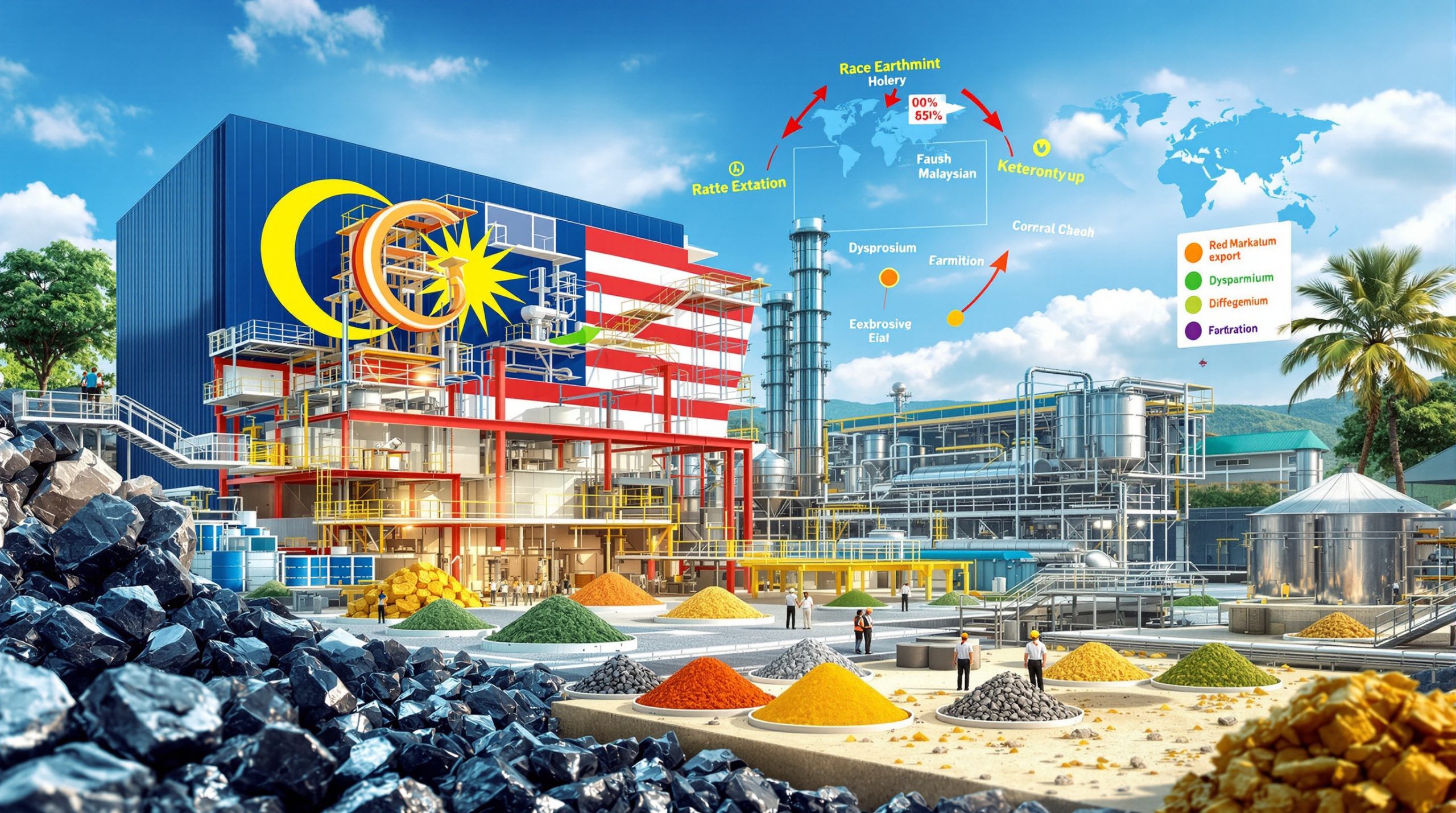Mining is physically demanding and socially isolating, exposing workers to higher levels of mental health risks compared to most other industries. Mentally healthy workplaces in mining are essential to ensure that employees can work safely and productively. In 2021/22, the median time lost due to work‐related psychological injuries was over four times greater than that due to physical injuries (Tibben, 2025). Furthermore, these statistics highlight the urgent need for robust mental health practices.
Dr. Mark Deady from the Black Dog Institute emphasises that mental wellbeing deserves as much priority and attention as physical safety. He states, "Psychological safety must be treated as much of a priority as physical safety," urging companies to adopt comprehensive management systems. In addition, many organisations now integrate understanding mining regulations and standards into their policies to further support their teams.
Mining organisations increasingly recognise that neglecting mental health not only harms workers but also significantly impacts the operational bottom line. Consequently, factors such as increased absenteeism, reduced morale, and diminished workplace safety lead to costly operational inefficiencies. In addition, benchmarking with industry improvements, such as mining industry trends for 2025, provides further insights into the evolving workplace needs.
What Are the Unique Mental Health Challenges in Mining?
Mining workplaces expose workers to several unique psychosocial hazards. For instance, high job demands create continual pressure that contributes to chronic stress. In addition, job insecurity—often stemming from market fluctuations—can increase anxiety and uncertainty among employees.
Social isolation is another significant challenge. Many mining roles require working in remote locations or under Fly-In-Fly-Out (FIFO) arrangements, which can lead to intense feelings of loneliness and depression. Moreover, physically demanding roles often add extra layers of stress, as employees face fatigue that is both mental and physical.
Long durations away from family and support networks place additional strain on miners. Furthermore, shift work patterns drastically disrupt sleep schedules, increasing the risk of anxiety and mood disorders. For example, esg challenges in the mining industry often contribute indirectly by heightening overall workplace stress.
Dr. Deady notes that "psychosocial risks like job insecurity and poor work-life balance are systemic in mining" (Deady, as cited in Tibben, 2025). Therefore, understanding and mitigating these challenges is critical for creating and maintaining mentally healthy workplaces in mining.
How Do Psychosocial Hazards Impact Mining Workers?
Psychosocial hazards in mining are linked to several detrimental outcomes for worker wellbeing. High job demands and rapidly changing environments can trigger acute stress responses, leading to long-term mental health issues. In addition, prolonged exposure to these hazards elevates the chances of depression and anxiety.
Consequently, the cumulative effect of these stressors can severely disrupt work-life balance. A higher turnover rate, estimated between 30-50% when these risks are unmanaged, further destabilises mining operations (Tibben, 2025). Moreover, the emotional toll of chronic stress often contributes to strained personal relationships outside of work.
Poor mental health also undermines team performance. As workers become overwhelmed, decision-making abilities diminish and the overall safety culture is compromised. To address these issues, mining companies integrate best practices, including digital transformation in mining to enhance operational support systems.
Furthermore, recent discussions in the industry stress the importance of adopting sustainable practices that promote the wellbeing of the workforce. This not only benefits employees directly but reinforces the broader organisational structure by facilitating effective teamwork and communication.
What Framework Can Mining Companies Use to Create Mentally Healthy Workplaces?
Mining companies can adopt a comprehensive, multi-tiered approach to mental health based on the Black Dog Institute's "Framework for Mentally Healthy Workplaces." This framework integrates key elements at various organisational levels.
-
Systems and Policy Level
- Develop comprehensive mental health policies.
- Establish detailed reporting mechanisms to identify psychosocial hazards.
- Integrate organisational policies with mining’s role in the clean energy transition to align sustainability with safety.
-
Operations and Team Level
- Foster positive interpersonal and team-based environments.
- Support mental wellness initiatives and regular team briefings.
- Utilise technology and flexible arrangements to reduce workplace tension.
-
Job Level
- Reconfigure job roles to minimise excessive mental stress.
- Innovate work practices by introducing ergonomic solutions.
- Continuously assess and adjust task structures based on feedback.
- Individual Level
- Provide targeted employee stress management programmes.
- Disseminate educational resources to build coping strategies.
- Facilitate access to confidential mental health support.
Dr. Deady advocates a "whole-of-organisation approach" emphasising business-wide implementation and reassessment to ensure long-term mental health outcomes (Deady, as cited in Tibben, 2025). In addition, some companies are already leveraging tools like menting healthy mining practices to monitor their progress.
How Can Mining Companies Assess Their Mental Health Approach?
Mining organisations can evaluate their mental health strategies by utilising self-audit tools. For example, the Black Dog Institute offers a free self-audit that allows companies to:
- Review performance against comprehensive mental health criteria.
- Measure effectiveness at organisational, team, and individual levels.
- Identify key gaps where improvements are necessary.
Consequently, the systematic application of these auditing tools helps mining companies pinpoint the root causes of mental stress. Furthermore, this process highlights areas where interventions are most needed to achieve truly mentally healthy workplaces in mining.
An additional benefit of regular audits is that they enable companies to adjust their policies in response to changing industry demands. This agile approach is particularly important in an environment where factors such as mining industry trends for 2025 influence overall workplace dynamics.
What Practical Steps Can Mining Companies Take to Support Mental Health?
Mining employers can take several practical steps to protect, promote, and respond to mental health challenges. It is a multi-phase process that requires commitment at all organisational levels.
-
Protect:
- Regularly assess workplace mental health risks.
- Mitigate identified psychosocial hazards promptly.
- Implement accessible and confidential reporting systems for hazards.
-
Promote:
- Launch initiatives to reduce mental health stigma.
- Provide mental health first aid training for leaders and supervisors.
- Establish a culture of open communication and appreciation.
-
Respond:
- Clearly define internal pathways for accessing mental health support.
- Facilitate swift access to professional interventions and community resources.
- Empower supervisors to identify and act upon early warning signs.
These measures help create a supportive framework for addressing mental health issues. In addition, drawing insights from successful case studies nurtures a culture of continuous improvement in mental health practices.
What Resources Are Available to Help Mining Companies?
The Black Dog Institute offers a robust range of resources geared towards creating mentally healthy workplaces in mining. These include:
- Manager and employee-level skill-building workshops.
- Self-paced, digital mental health eLearning programmes.
- Knowledge-building presentations and training sessions tailored for the mining environment.
- Customised workplace consultations and mental health audits.
- Evidence-based tools and materials that facilitate effective mental health initiatives.
Furthermore, these scalable resources make it easier for mining companies to integrate comprehensive mental health strategies into their operations. In addition, ongoing research supports the continuous refinement of these tools to ensure they remain relevant and effective.
Moreover, external collaborations provide extra layers of support. For instance, the initiative outlined at mining mental health strategies offers extensive guidance and innovative ideas that align with industry best practices.
How Does Investing in Mental Health Benefit Mining Operations?
Investing in mental health brings tangible benefits to mining operations. These investments yield direct, measurable improvements in efficiency and safety. Specifically, companies report:
- Reduced absenteeism and presenteeism, leading to enhanced productivity.
- Lowered operational costs due to fewer compensation claims.
- Improved safety outcomes, as fewer accidents result from impaired mental clarity.
- Increased employee retention, lowering recruitment and training expenses.
- An enhanced reputation as an employer of choice, attracting highly skilled talent.
Furthermore, organisations that prioritise mental health often experience stronger team cohesion and better communication. This commitment not only fosters a productive environment, but also ensures that mentally healthy workplaces in mining are maintained as a core value.
In addition, some companies are leveraging insights from mining industry trends for 2025 to strategically invest in comprehensive mental health programmes. These investments are proving to be highly beneficial in both the short and long term.
FAQs About Mental Health in Mining
How prevalent are mental health issues in the mining industry?
Mining workers experience significantly higher rates of psychological distress compared to other industries. This is mainly due to isolation, high-pressure working environments, and irregular shift patterns that disrupt sleep cycles.
What are the warning signs of mental health issues in mining workers?
Common indicators include noticeable behavioural changes, increased irritability, reduced productivity, and a tendency to withdraw from team activities. These early signs warrant close attention and timely intervention.
How can mining companies balance productivity demands with mental wellbeing?
By integrating mental health strategies into operational plans, companies are better equipped to manage workload pressures while promoting employee support. Such balanced approaches ensure that productivity does not come at the expense of wellbeing.
What role do supervisors play in supporting mental health?
Supervisors act as frontline contacts, recognising early issues and guiding employees towards available support systems. They play an essential role in creating an environment conducive to mental health and safety.
The integration of comprehensive strategies, ongoing audits, and targeted support not only enhances productivity but also safeguards the dignity of the workforce. By adopting measures from the Black Dog Institute’s framework and leveraging insights from industry developments, mining companies can set a precedent for sustainable practices. Ultimately, these efforts underpin the vision of creating robust and mentally healthy workplaces in mining.
In this dynamic industry, evolving trends such as emerging mining’s role in the clean energy transition and innovations in operational practices provide the necessary impetus for change. Furthermore, companies that invest in mental health initiatives often observe a noticeable shift in both corporate culture and operational safety.
It is clear that effective mental health management can boost operational success. Consequently, leaders across the mining sector are urged to integrate mental health considerations into their strategic planning. Such initiatives will ensure that the well-being of employees remains a priority, ultimately crafting safer and more resilient work environments.
Moreover, increased collaboration between industry bodies and mental health experts continues to drive progress. Regular training, updated policies, and accessible resources all contribute to fostering mentally healthy workplaces in mining. Through these combined efforts, the mining industry sets a strong example of how strategic investments in mental health create lasting benefits for both workers and operations.
Looking to Invest in Mining Companies With High ESG Standards?
Discover how leading mining companies are implementing mentally healthy workplace practices by exploring Discovery Alert's proprietary Discovery IQ model, which helps identify companies prioritising ESG initiatives including mental health programmes. Visit https://discoveryalert.com.au/news/discoveries/ to learn how these forward-thinking organisations often deliver superior long-term investment returns.




